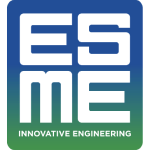Although the primary mission of any French engineering schools is education, research at ESME nevertheless remains an important goal on the agenda.
RESEARCH AND EDuCATIoN AT THE HEART oF ouR AGENDA
RESEARCH IN THE TRAINING OF ESME STUDENTS
Our research strategy has been set up to ensure coherence and continuity of research and educational activities, while taking into account social and environmental issues.
Research covers all fields of expertise in the education of engineers at the school, from energy to information and communication technologies; the lines of research incorporate the major issues of our times, such as health and autonomy (especially in relation to the aging of the population) and energy management.
DIFFERENT FORMS OF RESEARCH
Research at ESME takes additional forms as well, running from upstream research (in partnership with university and institutional labs) to technology transfer (contractual research on behalf of a partner) and joint research (research involving several industrial or institutional partners, the benefits of which can be both industrial in the short term and academic in the longer term).
THE LINES OF RESEARCH AT ESME
The lines of research, which are connected to the topics taught in the ESME laboratories, fall within the domains of energy and collaborative robotics, embedded electronics and the Internet of Things, information theory and telecommunications networks, and Big Data and augmented reality.
NETWoRKS, JoINT RESEARCH, AND ACADEMIC RESEARCH
ESME is a member of several competitiveness clusters incorporating numerous industry players, and has also been able to cultivate a variety of institutional partnerships.
COMPETITIVENESS CLUSTERS AND NETWORKS
Competitiveness clusters owe their creation to the new industrial policy that was introduced in France in 2004. A cluster brings together corporations, research centers, and educational bodies engaged in partnerships to implement a common development strategy which is designed to spark collaboration on innovative projects. to date, the school is a member of several competitiveness clusters:
- MEDICEN Paris Region, competitiveness cluster for innovative technologies benefiting health and new therapies
- MOVEO, competitiveness cluster in automobile R&D and public transportation
- ASTech Paris Region competitiveness cluster in the areas of aeronautics, space, and embedded systems
- Cap Digital, competitiveness cluster for digital transformation.
- Silver Valley
- Cap’Tronic
INSTITUTIONAL PARTNERS
In recent years the school has worked with a number of partners, some of which include:
- Université Paris-Est Créteil (UPEC)
- Images, Signals, and Intelligent Systems Laboratory (LISSI)
- Rothschild Foundation
- Garches Foundation
- Henri Mondor Hospital
- Georges Pompidou European Hospital
- The Forensic Sciences Institute of the National Gendarmerie (IRCGN)
- Datacamp : The department of Computing & Digital Technologies is using the smart platform DataCamp to enforce learning of Data Science Online (R, Python, Data visualization, Deep Learning and more)

 ADMISSIONS
ADMISSIONS DOCUMENTATION
DOCUMENTATION NOUS RENCONTRER
NOUS RENCONTRER
